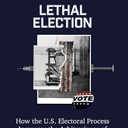A nine-member death penalty assessment team appointed by the American Bar Association’s (ABA) Death Penalty Moratorium Implementation Project has determined that Arizona’s capital punishment laws are plagued with serious problems and that the state should immediately take steps to improve the fairness and accuracy of the system. A report issued by the assessment team identified significant problems, including the lack of a centralized system of providing indigent defense services in capital cases that leaves some defendants without adequate representation, inadequate compensation for defense counsel, failure to implement a mechanism to ensure that death sentences are imposed proportionately in capital cases, and an imprecise application of what crimes should be considered “especially cruel, heinous or depraved” to make them eligible for the death penalty.
“This is not an academic issue. Real people, victims’ family members as well as defendants, rely on our system to get this right. Unfortunately, the evidence shows that we have not always done so. Since 1973, Arizona has exonerated eight inmates who already had been sentenced to death and resided on death row awaiting execution. Our concern for public safety means that each citizen of Arizona has a stake in achieving justice, and we must not allow shortcomings to persist with public safety at stake,” noted the assessment team’s chair, Professor Sigmund Popko of the Sandra Day O’Connor College of Law at Arizona State University.
To address the problems identified during its 21-month study of Arizona’s death penalty, the assessment team made a series of recommendations, including:
- All poor defendants must receive competent lawyers at ever state of the capital process. Currently, Arizona does not provide statewide oversight of its indigent defense system. As a first step, Arizona should conduct a study of Maricopa County’s four indigent defense offices to determine if the apparent discrepencies in average expenditures on capital cases are problematic and signal difference in the quality of represenation.
- Arizona should protect innocent death row inmates by providing adequate funding for oversight of crime labs and forensic investigations. The group recommended that the state take steps to ensure that biological evidence is tested quickly and accurately to determine guilt or innocence as early in an investigation as possible. It also recommended that the state create an independent agency to oversee its crime laboratories.
- Arizona should protect against arbitrariness in capital sentencing. The team recommended the establishment of a capital case review committee based in the Arizona Prosecuting Attorneys’ Advisory Council. This review committee would exercise final discretion as to whether the death penalty should be sought and would take this decision-making ability out of the hands of local prosecuting attorneys.
- Arizona should collect and analyze the data that is necessary to determine whether its death penalty system is fair and accurate. The group recommended that Arizona establish and fund a clearinghouse to collect data on first-degree murder cases, including information on each county’s provisions for defense services. The team also called on the state to fund a study of the administration of capital punishment to check for socio-economic, racial, geographic, and other potential disparities.
- Arizona should limit its “especially heinous, atrocious, or depraved” aggravating circumstance. The assessment team recommended that Arizona eliminate the vagueness of its current aggravated circumstance wording by adopting a uniform and specific definition that could give more guidance to jurors during the penalty phase of a death penalty case.
To examine Arizona’s death penalty, the team — which also included chief counsel to the Capital Litigation Section of the Arizona Attorney General’s Office, a former Arizona Supreme Court justice, three partners in law firms, and the director of the Center for Urban Inquiry at Arizona State University — measured Arizona law, procedure and practices against protocols developed by the ABA to evaluate the effectiveness and fairness of death penalty statutes. The Arizona state assessment is the third such report issued by the ABA Death Penalty Moratorium Implementation Project. Additional reviews are underway in Florida, Indiana, Ohio, Pennsylvania, Tennessee and Virginia.
(ABA Press Release, “Arizona Legal Team Urges Reforms of State Death Penalty System, Identifies Broad Problem Areas,” July 17, 2006). Read the ABA’s press release. Read the fact sheet summarizing Arizona’s death penalty problems and the team’s recommendations. Read the report’s executive summary. Read the full Report.
See Innocence, Arbitrariness, Representation and Studies.



